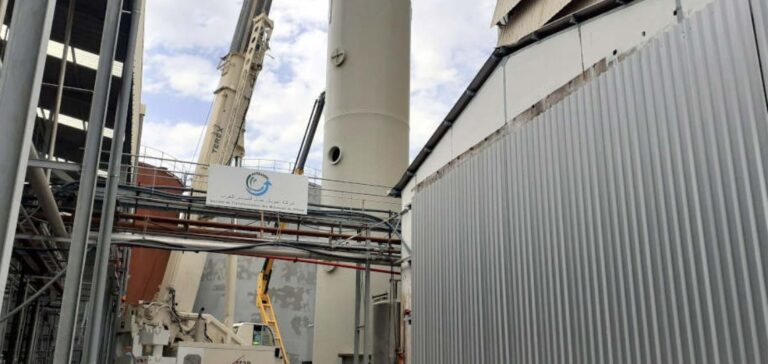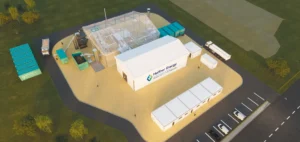Greenlane Renewables Inc. through its subsidiary Airdep S.r.l. signs a major agreement for the supply of several biogas treatment units with a recurring European customer, worth 1.3 million euros. This contract illustrates the growing demand for Greenlane’s advanced technological solutions in the renewable energy sector. The equipment is designed to remove hydrogen sulfide (H2S) from raw biogas, thus protecting downstream infrastructures. In North America, Greenlane markets this equipment under the Greenlane Cascade H2S brand, while elsewhere in the world it is marketed under the Airdep DBC brand. These technologies are essential for transforming biogas into biomethane or energy, meeting the diversified needs of the global market.
Innovative processing technology
Greenlane’s treatment technology is designed for a variety of applications, offering a cost-effective and efficient regenerative solution.
The process begins by feeding raw biogas into a scrubber tower, where it is treated with a proprietary chemical solution.
The treated gas exits at the top of the tower, while the sulfur-rich solution is oxidized in a separate tank.
After sedimentation, the elemental sulfur solids are separated and the regenerated solution returns to the scrubber tower, ensuring a continuous cycle.
This method is distinguished by its ease of installation and operation, eliminating the costs and operational problems associated with traditional biological scrubbing and media systems.
The sulfur solids produced can be used as fertilizer, adding further environmental value.
Stronger market position
According to Ian Kane, President and CEO of Greenlane, this contract strengthens the company’s position in the global market for biogas treatment solutions.
“Our ability to deliver innovative and effective solutions to our customers is crucial, especially when our products can be sold on their own or in combination with our biogas upgrade systems,” he says. The biogas market requires efficient H2S elimination to protect infrastructures and optimize biomethane and energy production. Greenlane’s range of desulphurization products offers an established, robust and cost-effective solution with low operating costs, meeting the industry’s stringent requirements.
Perspectives and reflections
This new contract in Europe demonstrates Greenlane Renewables’ ability to meet the growing needs of the renewable energy market with cutting-edge technologies.
By combining innovation and strategic partnerships, Greenlane is positioning itself as a leader in the global energy transition.
With solutions that optimize energy efficiency and deliver environmental benefits, Greenlane continues to play a key role in the renewable energy sector.
The energy transition will depend on technologies like those offered by Greenlane, which combine efficiency, sustainability and innovation.






















